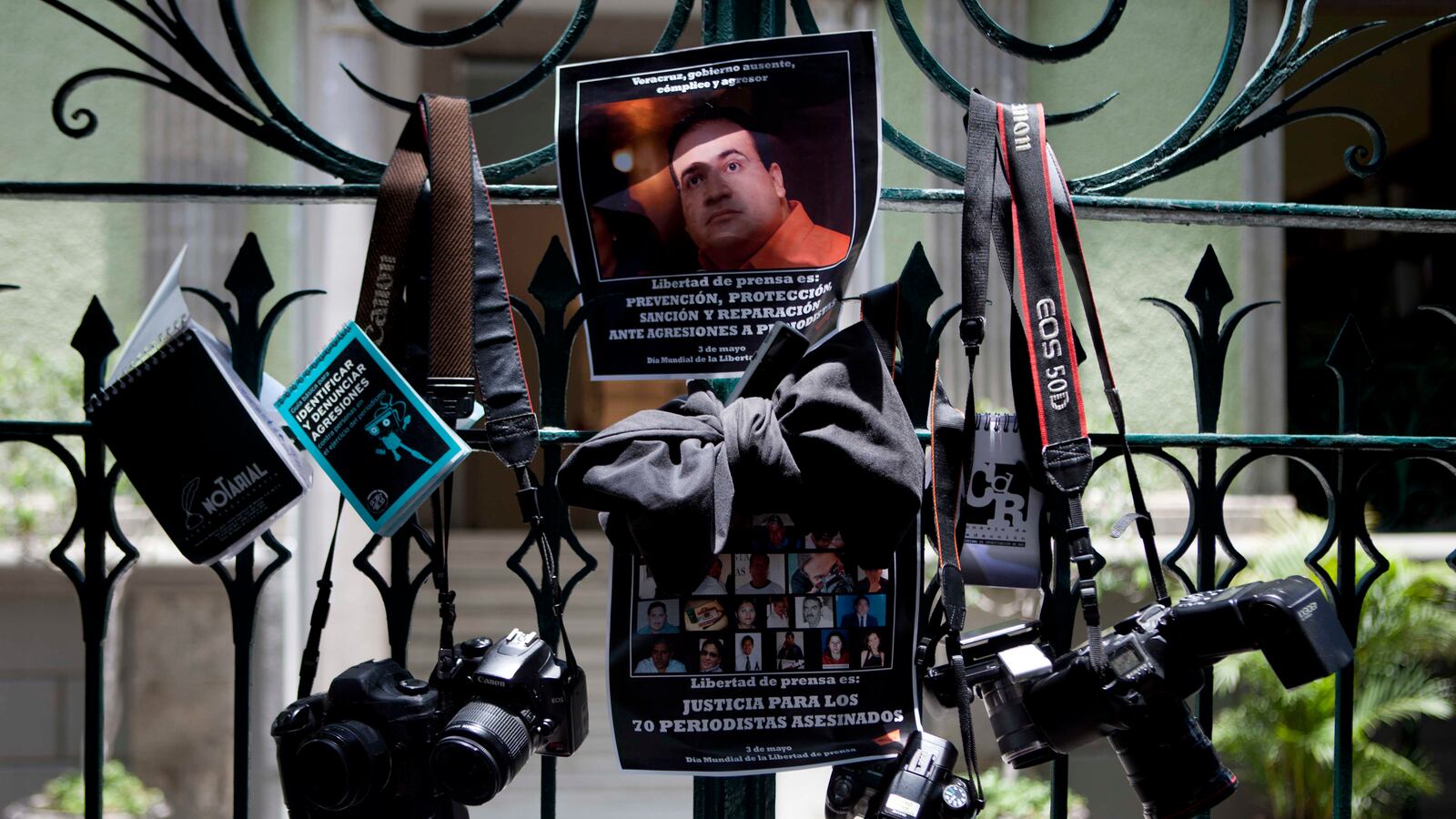In 2007, the Zetas, a ruthless criminal syndicate in Mexico, put out a threat unlike any previous one: an American journalist would be killed within 24 hours.

Being a journalist in Mexico is already a daunting task without a death threat. Information is difficult to collect. It’s nearly impossible to figure out your sources from your enemies. Personal safety is, at best, illusory.
Alfredo Corchado, a Mexican American journalist, has been covering the country since 1994 for The Dallas Morning News. Over the years he’s dug deep to uncover the inner workings of drug cartels and their complex relationships to the upper echelons of government. He’s familiar with the political changes that have transformed the country, including the defeat in 2000 of the despotic Institutional Revolutionary Party, which ruled the country uninterruptedly for 71 years. And he works hard to understand the ever changing, complicated dance between Mexico and the United States.
All of which comes at a price. Corchado’s editors, hearing that he may be the target, urged him to return to the safety of the U.S. But a compulsion to find out if it was a credible threat, and what sparked it sent him, instead, on a mad hunt. He chronicles his story in his book, Midnight in Mexico: A Reporter’s Journey Through a Country’s Descent Into Darkness.
The book also paints a portrait of contemporary Mexico. Corchado has a wide net of confidants and sources each of whom shows a different side of Mexico. His maid is painfully dishonest after years of unwavering loyalty. His girlfriend struggles emotionally with the horrific crime scenes she reports on along the border. A U.S. law enforcement official he thought he could trust uses him for his own agenda. The Mexico he presents is accurate: corrupt, heartbreaking, and vibrant. It is complex, violent, and beautiful. But the Mexico he experiences is also privileged.

Corchado belongs to a small community of people who enjoy an added layer of security: the foreign press corps. He believes that physically looking like a local Mexican strips him of any perceived immunity. But as an American citizen, with an American media company behind him, Corchado is, while certainly not untouchable, more protected than many people in Mexico—and much more than the local press.
We the members of the foreign press corps often have more exclusive access to certain types of information. We can write stories that many local and national reporters would never get approval to do. And we remind ourselves, over and over again, that an attack on us would be so public and egregious that it is simply not good for business. It is not so for the rest of the press corps, who have bore the brunt of the violence unleashed on journalists.
At least 14 journalists were killed during Felipe Calderon’s administration, from 2006 to 2012. They were all Mexican, according to the Committee to Protect Journalists. To add insult to injury, authorities frequently tarnish the reputation of murdered reporters, alleging drug ties.
Newsrooms have been targeted by bombs, and some states, like Zacatecas and Durango, are in the midst of a total media blackout. Reporters there know all too well the price of an ill-worded question.
On a recent visit to Culiacan, a city considered to be the cradle of the Mexican drug trade, I met Javier Valdez, the founder of the weekly newspaper Rio Doce, which is virtually the only one in the state to publish investigative pieces on drug cartels. I asked him how he protects himself and whether he has someone in charge of his security. “This is my protection,” Valdez said, taking out a pen from his shirt pocket, and smiling. “It’s bulletproof.”
Like him, hundreds of other local journalists know that if they report on one cartel more than the others, or give details about certain crime scenes, it is unlikely that someone will offer them sustained and effective protection. They often work amid these risks for an appallingly low salary.
Dalia Martinez is a national correspondent in Michoacan, one of the states that has been quietly slipping out of the government’s control and into that of the drug cartels’. She earns less than $500 a month, has no health benefits, and must travel across the state on her own. Security is rarely discussed with her bosses. In 2012, I spent three days with Martinez on assignment. Some of the information she shared with me would not make it into her stories, which are closely monitored and sometimes censored. This happens regularly, and provides an example of how the foreign and Mexican presses have developed a mutually beneficial relationship with one common objective: to get the truth out and remain safe.
Far from diminishing Corchado’s work, the challenges local reporters face makes his contributions, and those of the rest of the foreign press corps, even more essential. Corchado eventually finds out what prompted the threat against him: a story he wrote revealing a peace pact between cartel leaders and government officials. Would a local paper have published this story? With virtually non-existent safeguards for its reporters and editors, the stakes might have been too high.





